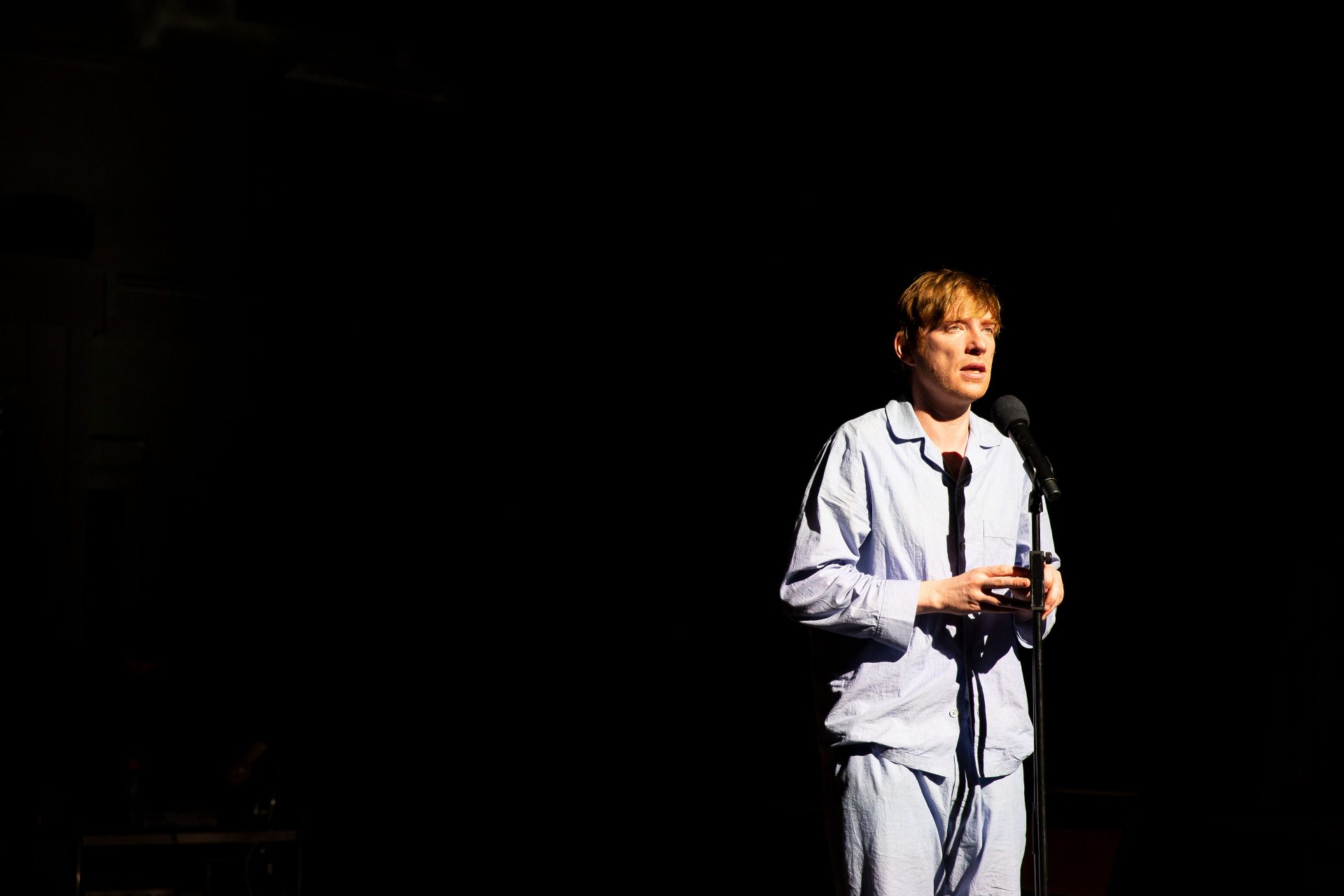When we talk about medicine, we often think of something that can cure, treat or diagnose an illness – or at least numb the symptoms. Yet when we talk about someone “getting a taste of their own medicine”, the word takes on an entirely different meaning – suggesting someone deserving of punishment. This extends to Enda Walsh’s new show Medicine, where the mystery of whether his protagonist, John, is being helped or harmed by those around him will leave you reeling long after the show has ended.
Produced by Landmark Productions in association with Galway International Arts Festival, Medicine opens with pyjama-clad in-patient John (Domhnall Gleeson) entering a communal hall left in disarray after some sort of celebration. Jamie Vartan’s set design – with colourful party streamers strewn everywhere – offers a great juxtaposition to the silent and tense atmosphere; the post-party setting is unnerving to John, threatening the important day ahead. As he tries to tidy up the mess, the loud burst of balloons and hidden confetti cannons keep John – and indeed the audience – on edge. The sense of unease grows with the arrival of the two actors and a musician who, with scripts in hand, reveal they are here to help John tell the story of his life and how he came to be in this unnamed institution.
Strange and surreal, Medicine is a sublime piece of theatre. Through a both cathartic and crippling form of talking/drama therapy – allegedly carried out once a year – John relives what he believes are pivotal moments in his life; moments which are hammily performed by the two Marys alongside him. The frequent injections of humour simultaneously ease and magnify the tension, and Walsh’s incorporation of absurdist elements rarely feel out of place. Rather they lend themselves to the bizarreness of the events that unfold, while simultaneously allowing the cracks to show. Also propelling the often frenetic energy is Seán Carpio as the Drummer, whose jazz rhythms add to the cacophony of voices and sound effects.
Matching the narrative’s intensity are a formidable cast of actors. As the egotistical Mary 2, Clare Barrett presents a sinister, often-smiling figure whose role is to ensure John admits to why he deserves to be here. Frequently pressing ahead – skipping events deemed irrelevant to the task at hand – her control over John and the other Mary becomes increasingly uncomfortable. As the “performance” continues, we see Aoife Duffin’s Mary 1 begin to question the purpose of this dramatization, fearing for John and her own safety. Front and centre, of course, is Gleeson, who is magnificent as John. He conveys his character’s anxiety, vulnerability, and despair beautifully. As Mary 2 tries to rush John – brutally editing out sections of his life – his quiet simmering is palpable. His alienation and unravelling is painful to watch. Still, the threat he potentially poses to himself, and others, remains ever-present; the way he goes from sobbing to furiously shouting his scripted monologue – foaming at the mouth – will have you squirming in your seat.
Before Medicine becomes overwhelmingly gruelling, Walsh offers some reprieve in the play’s final moments – finding peace among the chaos. Though Medicine ends with many questions unanswered, this isn’t too frustrating. Long after the performance has ended, you will undoubtedly find yourself ruminating about what you have just witnessed and the mix of emotions you have felt along the way. Even without any answers, you will know you have just seen something truly special.
